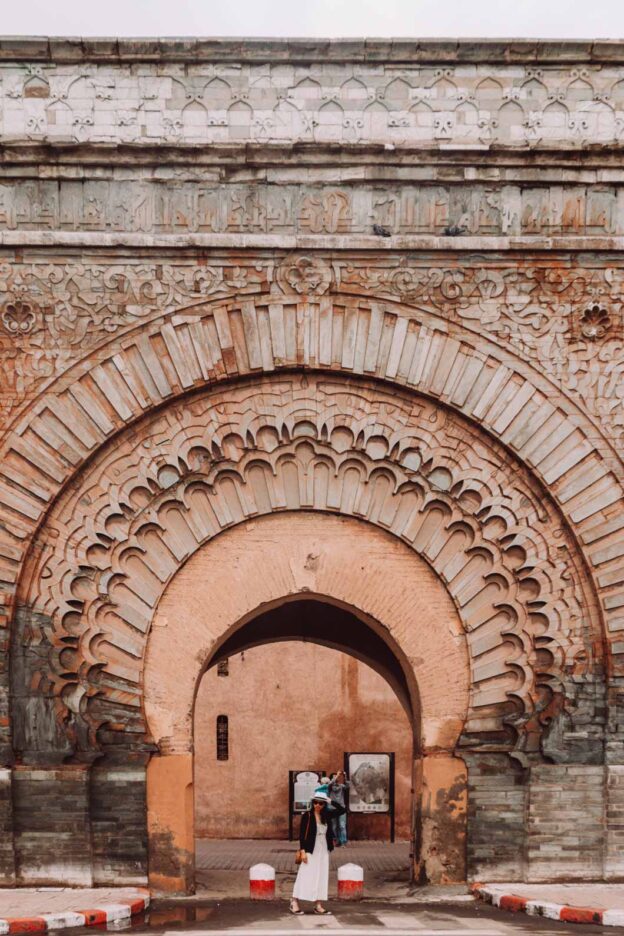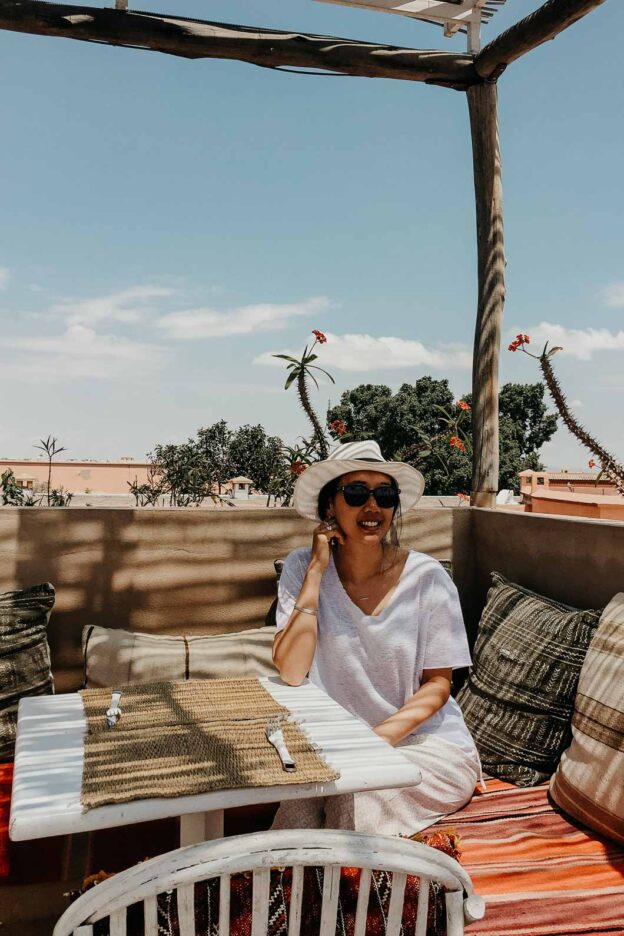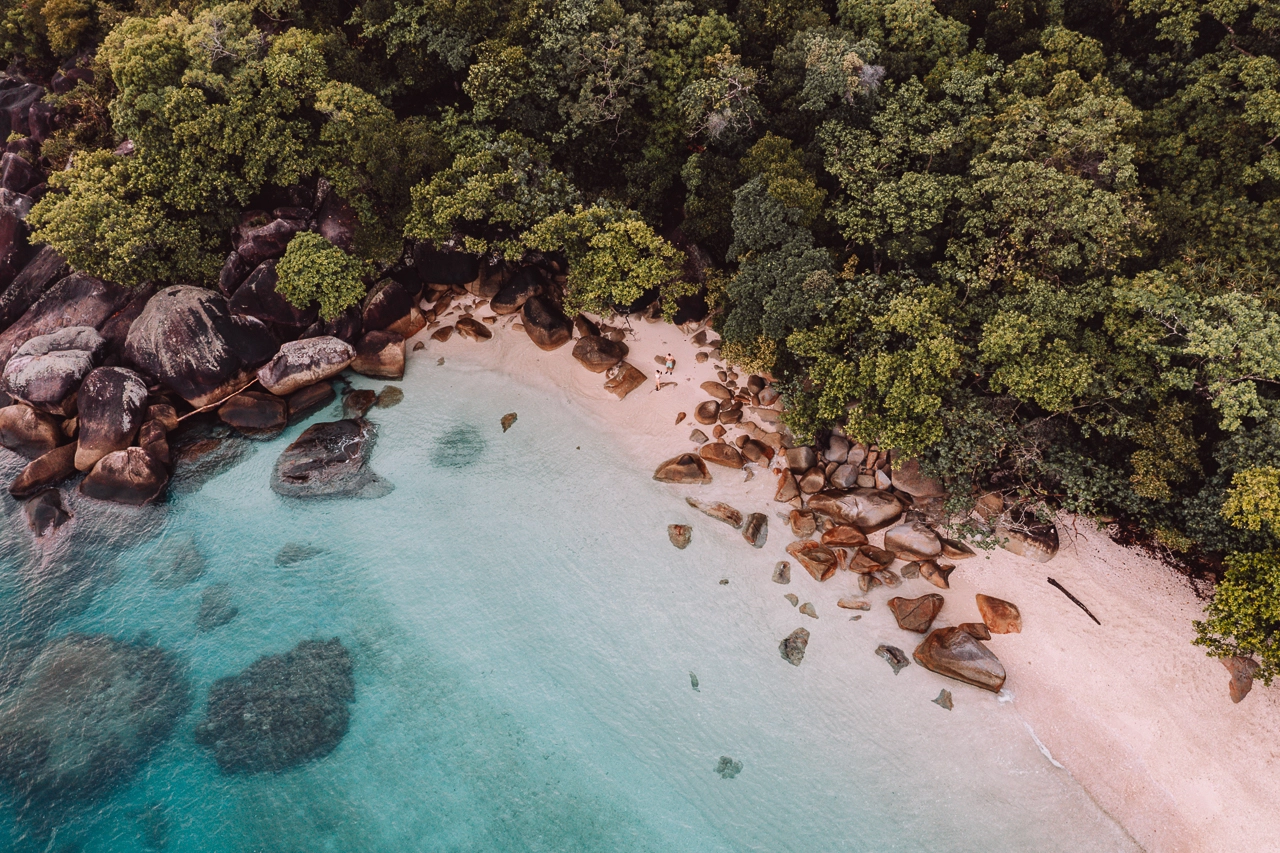
THINGS TO KNOW
Our reading from blogs and discussion boards on tripadvisor consistently revealed that taxi drivers will try to rip off unsuspecting visitors. Do NOT pay the first price they quote! (Also refer to our next point).
We flew into Marrakech and stayed in the Medina. We read of one incident whereby a poor soul paid 300 DH for this journey, however, most advice from previous travellers highlighted that a taxi from the airport should cost only 70 – 80 DH. Turns out this advice remains up-to-date. When we walked out to the taxi rank outside Marrakech Airport, we overheard an American woman arguing with some drivers, “My hotel told me it would cost no more than 80 DH!” – good on you, lady!
Our riad had quoted us €15 (approx 160 DH) so we decided to take a risk and put our bartering skills to the test. The first quote given to us was for 300 DH and we refused this immediately. Our counter offer was for 100 DH and we refused to budge. The taxi driver originally offering his services reduced the price to 250 DH but would go no lower.
Eventually, the man managing the taxi rank “called a friend”. We made sure that the price was agreed upon before allowing our bags to be packed into the boot and voila! We arrived close to our destination safely and handed over 100 DH in exact change. Remain resolute. There are enough taxi drivers around and one will be willing to drive you for your stipulated price.
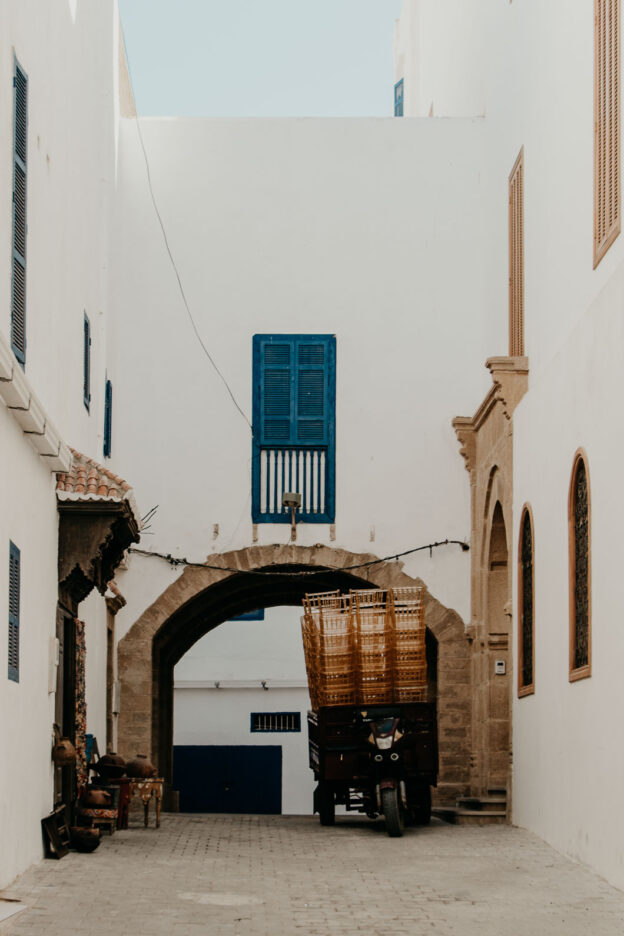
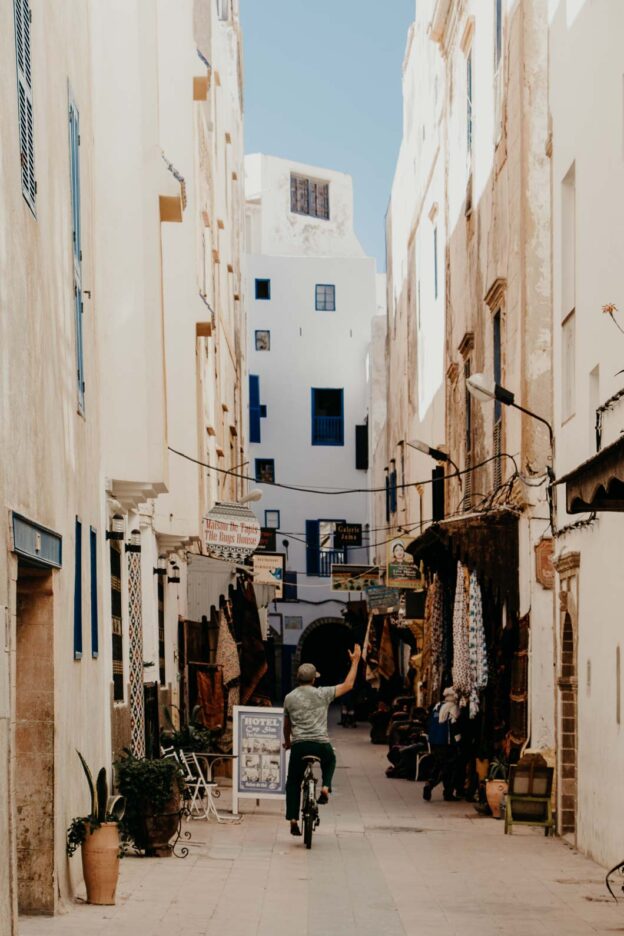
Bartering is an everyday occurrence in Moroccan culture. And nowhere else are you likely to be ripped off or scammed than in the souks of the medinas. Do NOT pay the first price you are quoted. Advice that we received was to pay approximately half of the original quoted price to you. Obviously, this will differ on where you are and what you’re buying but stick to your guns! Even walk away. Guaranteed, nine times out of ten, the shopkeeper will chase you to coerce you back and lower their price.
Do some window shopping if it all feels a bit overwhelming at first. Wander the souks for a little while to get a feel of the goods being sold and what it is you really want to buy. Have an idea in your mind of the maximum amount you’re willing to pay. It will also help if you have exact change. You may consider joining a walking tour or hiring a private guide if it will provide you with a higher level of comfort and security. Keep in mind that you will be taken to “particular” stores with whom the guide has connections. Don’t feel obliged to purchase items from these stores. You’ll also need to tip your guide.
FUN FACT: You might see a third person hold hands with a buyer and seller to help complete a sale in a local market.
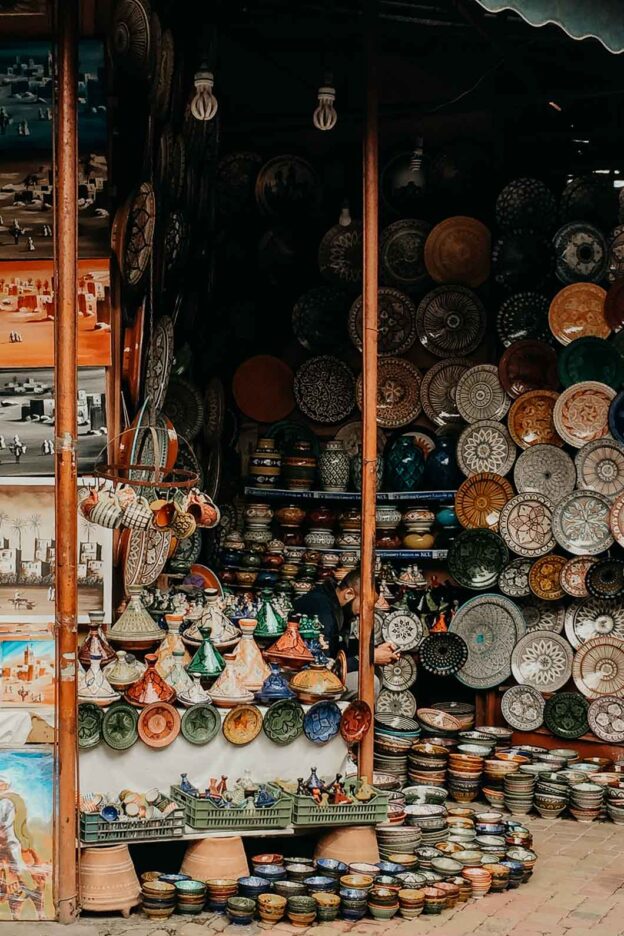
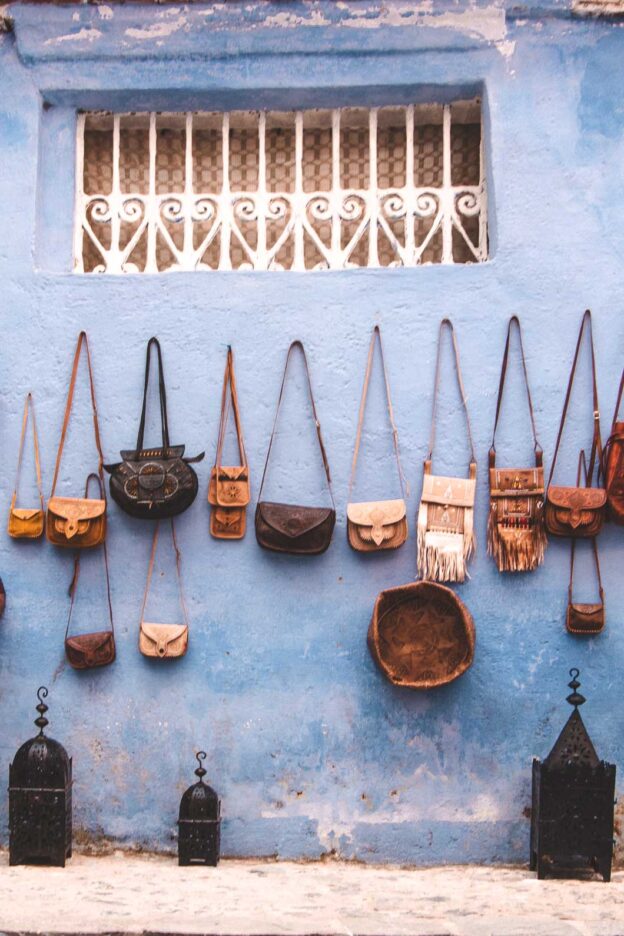
The main telecommunications networks operating in Morocco are Maroc Telecom, Inwi and Orange. It is quite simple to purchase a prepaid SIM card at the airport or tobacco stands in the cities provided your smartphone is unlocked. Before we arrived, we read online that SIM cards cost more at the airport than on the street (which is probably the case most of the time).
Whilst we didn’t inquire of the price at the airport, we were handed a free SIM card when exiting at arrivals, however, the representative took a photo of our passport. In hindsight, this was not a smart move as we don’t know where that photo went or how it was used but we did not use this SIM card in the end.
Our riad host helped us to purchase a SIM card just on the outskirts of Marrakech Medina. We purchased a prepaid Maroc Telecom SIM card for 50 DH (approx €4) which gave us 5GB of data valid for 1 month. This was all we needed for our 10-day adventure as we mainly wanted access to Google Maps during our stay in Marrakech. We read that Maroc Telecom provided the best coverage across the country and since we were travelling all over, it ensured we remained connected too.
From our experience, the Maroc Telecom SIM card provide adequate coverage across Morocco. Data speeds varied depending on coverage but for most of our trip we had 3G signal and in the major cities sometimes better.
If you’re happy to communicate with friends and family via social media, then buying data via a prepaid SIM is good value and easy to do. This way, you have access to Google Maps, you can update your Instagram and not have to worry about extortionate international roaming charges.
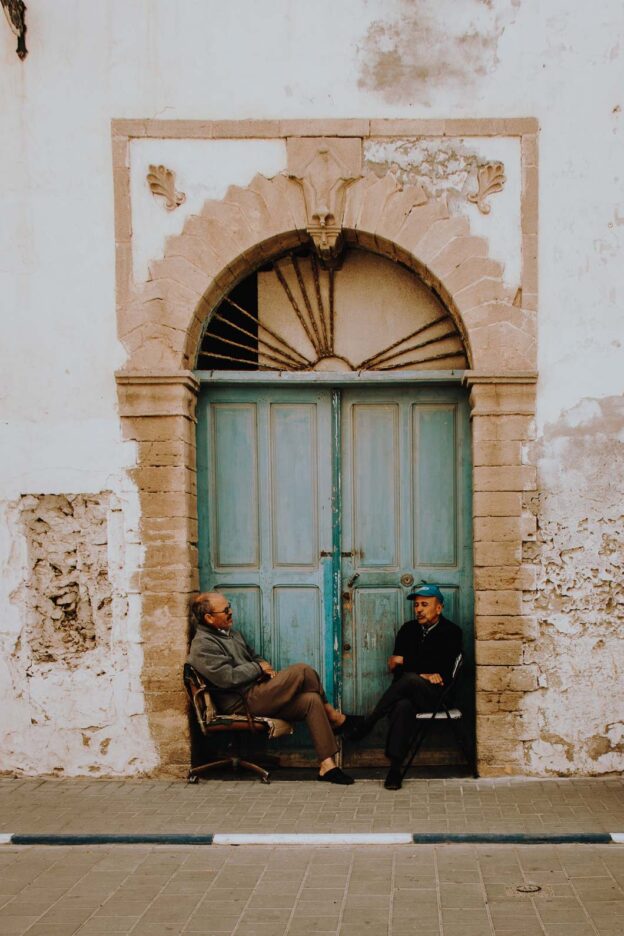
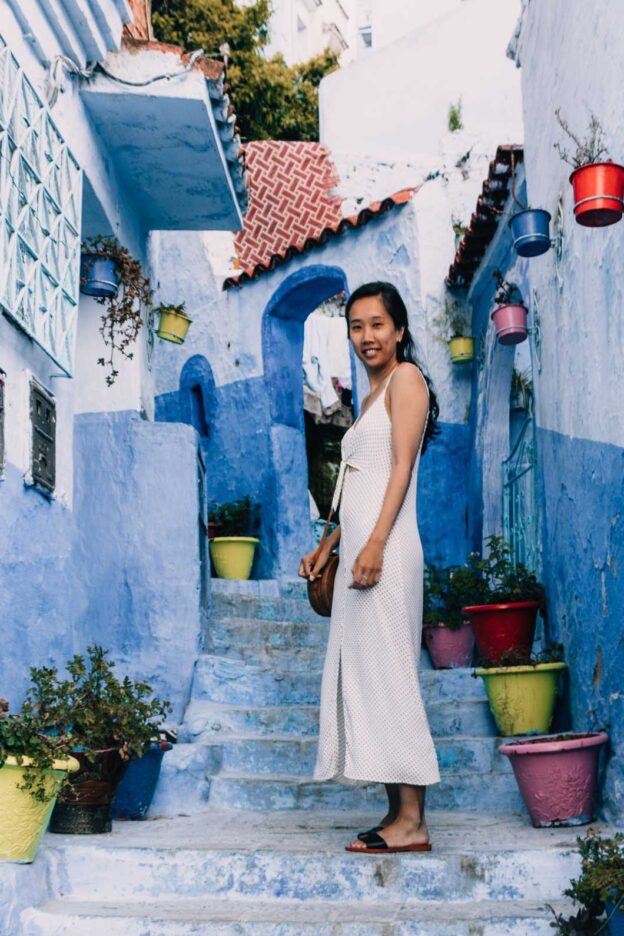
The official currency of Morocco is Moroccan Dirhams (MAD). Cash is widely used and is the preferred (or only) method of payment. Moroccan Dirhams is a closed currency, meaning that depending on where you arrive from, you will only be permitted to bring in and leave with a certain amount of dirhams. Don’t despair. ATMs are widely available in the major cities and towns. Make sure to notify your bank of your travel plans to prevent your card from being swallowed up!
We travelled with a tour group so our tour leader was able to advise when ATMs would and wouldn’t be available. If you’re bringing in foreign currency to buy Moroccan Dirhams on the ground, your best bet is to bring GBP, EUR or USD. Travelex and Western Union have several branches around the country and in major airports too.
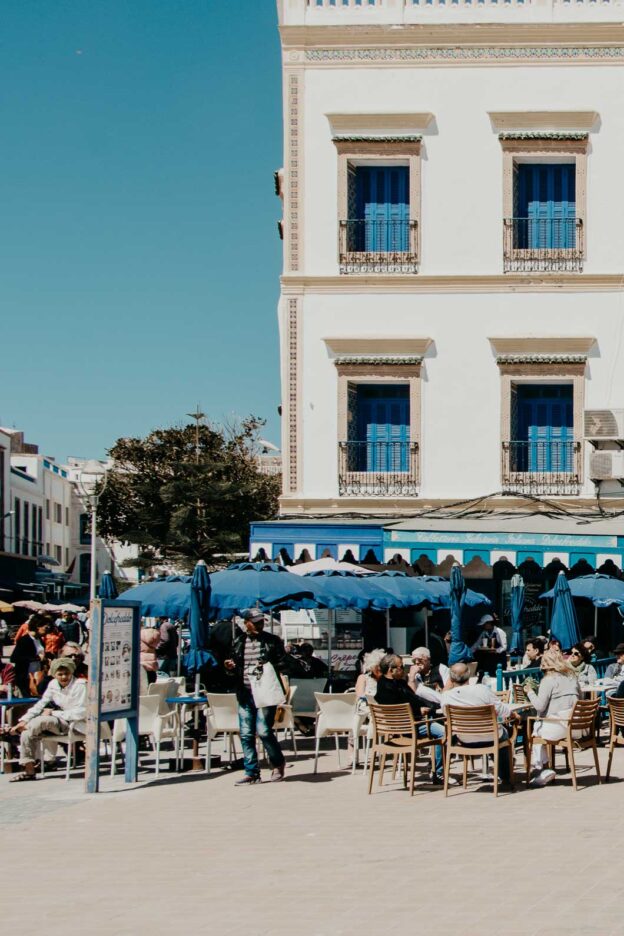
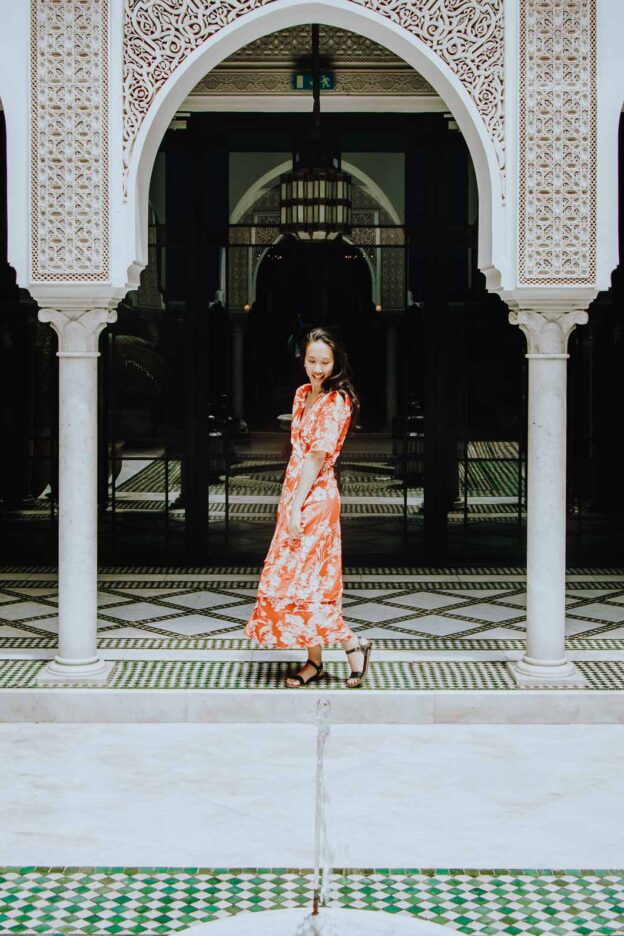
Tipping in Morocco for service has become customary with the usual rule of thumb being around 10%. It is handy to carry some coins (dirhams and centimes) with you to aid in this process. Waiters will often bring the bill and mention that service is not included. Luggage porters and tour guides are usually also tipped. For taxi drivers, it is best to agree on a price before you hop into the car. The tip is usually already included in this agreed price.
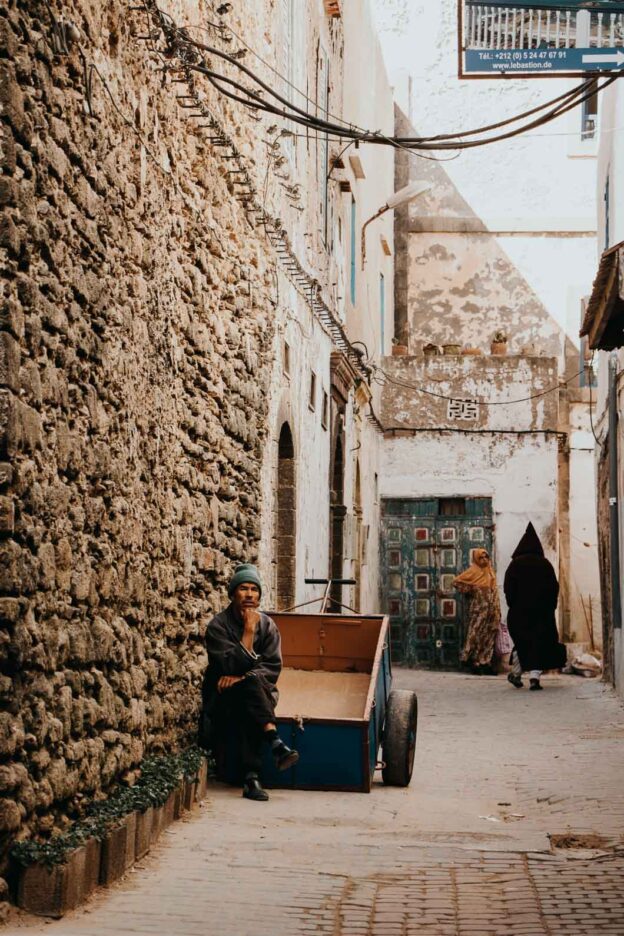
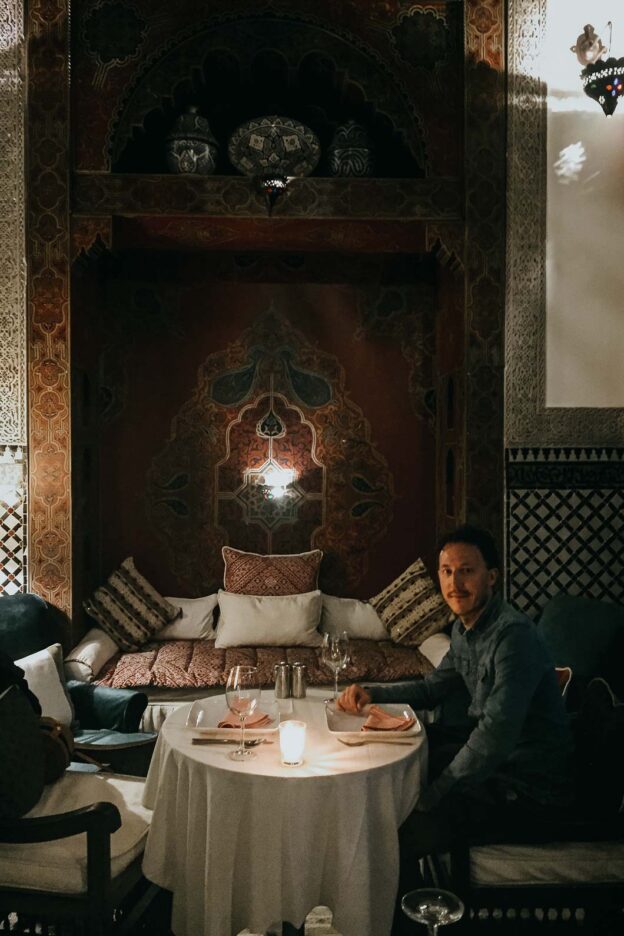
Mint tea in Morocco is what a pint of beer or cup of coffee is in the Western world. It is a much-loved tradition signifying hospitality and friendship and it would be considered impolite to refuse when it is offered to you. Morocco is one of the largest importers of Chinese gunpowder green tea which is in fact, one of the main ingredients of Moroccan tea.
Combined with fresh spearmint, boiling hot water and lots of sugar (we’re talking 4 – 6 sugar cubes per person!), you’ll be drinking mint tea at all times of the day! Moroccan tea is famously sweet so if you prefer your tea less sweet, make sure to check with your host. In restaurants and cafes, sugar cubes will usually come on the side so that you can add as much as you wish.
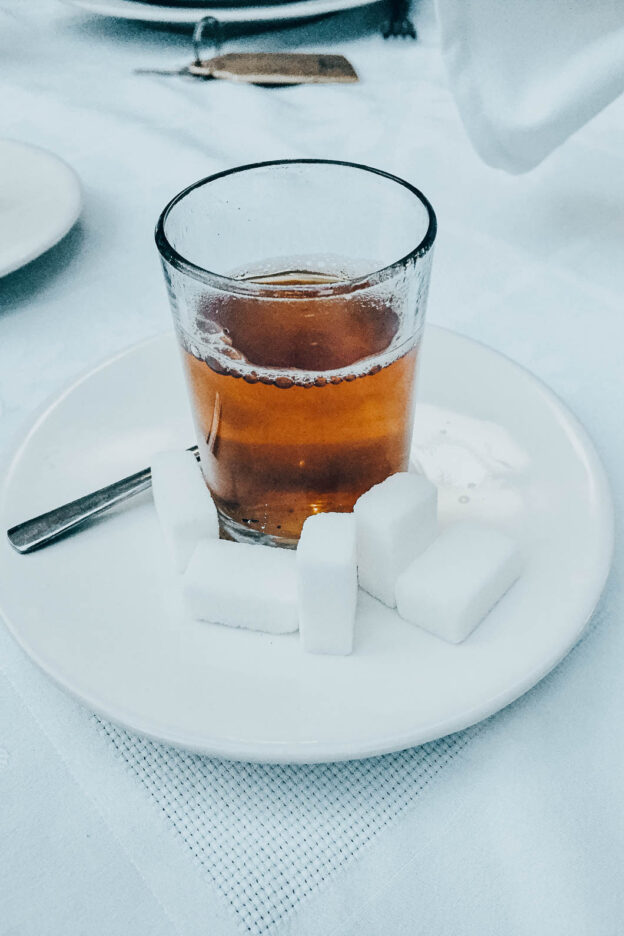
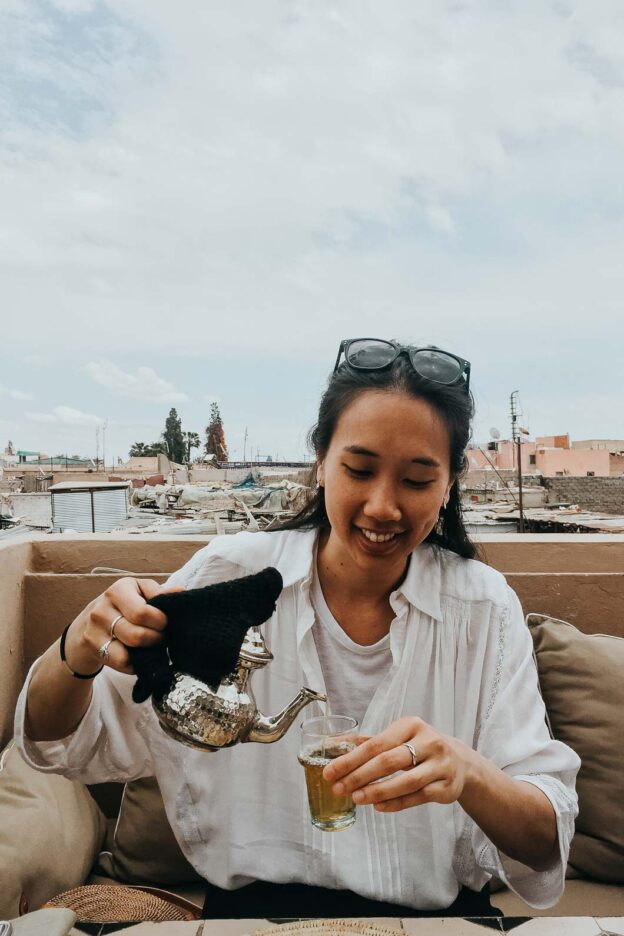
Morocco has a strict NO drone policy. They are not even permitted into the country and your bags will be scanned at the airport on entry and before you exit. Make sure to leave your flying camera at home.
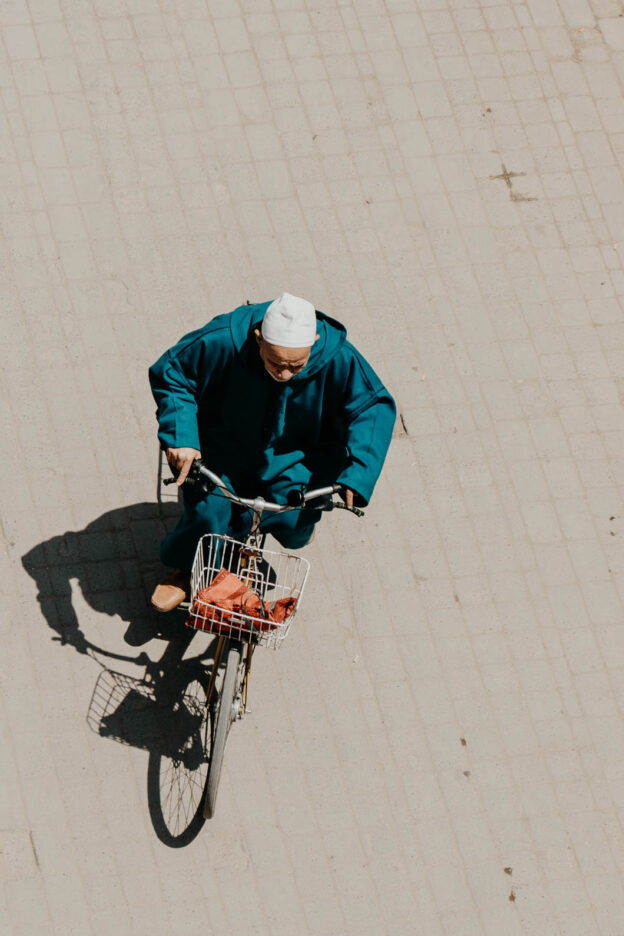
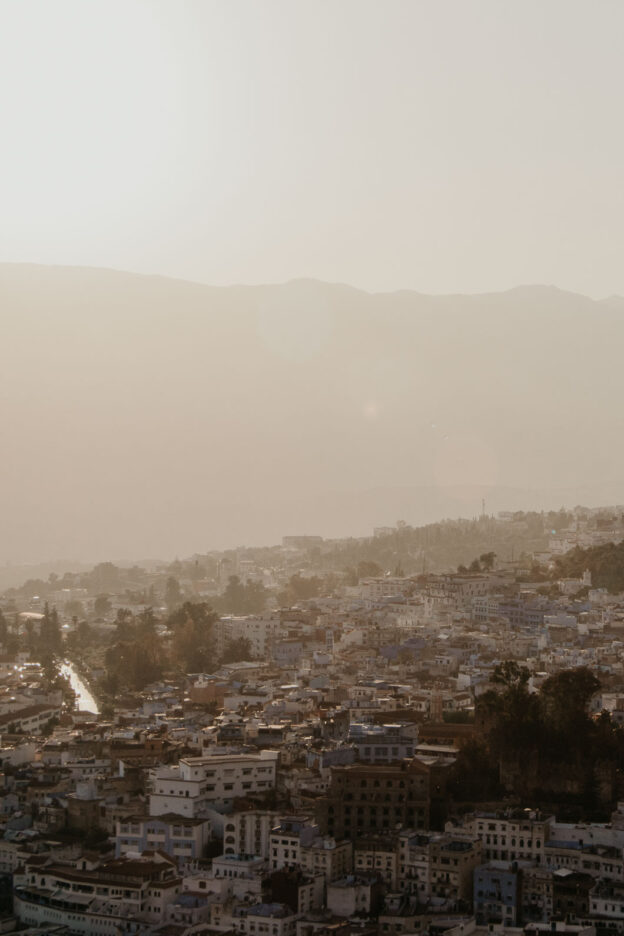
When our taxi driver dropped us off in the main square in Marrakech, we were quite disorientated. International roaming wasn’t working on our phones and we hadn’t purchased a local SIM card yet. Fortunately, our driver let us take a photo of the Google Maps directions on his phone. Even then, there were hardly any street signs in the medina and we stuck out like a sore thumb with our backpack and suitcase.
A few local boys offered to direct us to our riad and whilst it may appear friendly, we knew that they would expect their help to be returned in kind with a tip. Given that we didn’t have any small change on us and the fact that the boys soon began to taunt us, we were loathe to accept their offer. “You’re lost aren’t you?”. “I can help you find your riad – come with me this way”. Eventually (and thankfully!), we managed to locate our riad by ourselves.
If you are staying in the medina and have not pre-arranged door-to-door transfers with your accommodation, just keep calm. Be firm with the locals if you don’t want their help. If you have an unlocked smartphone, consider buying a local SIM and then using Google Maps to help guide you.
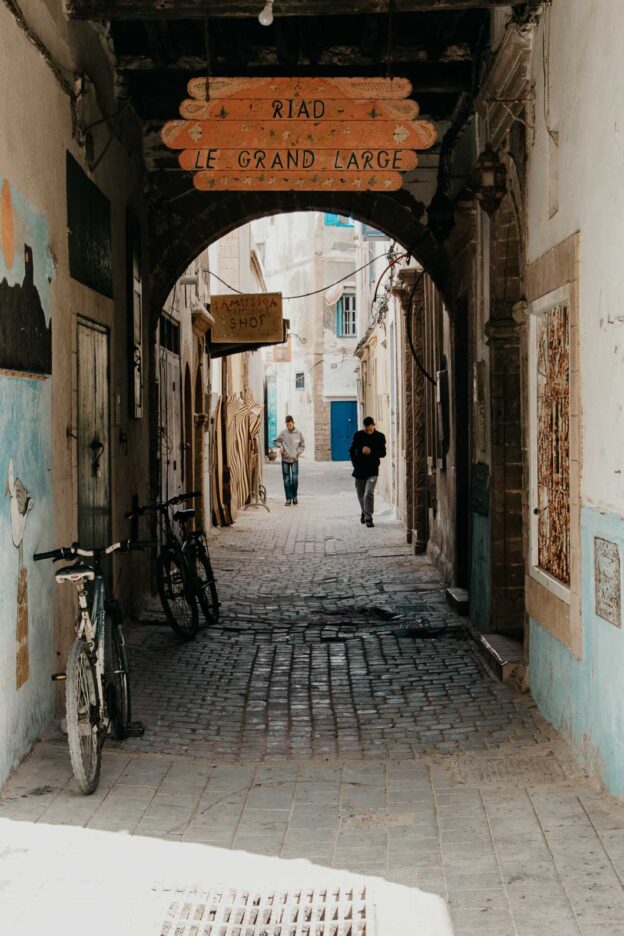
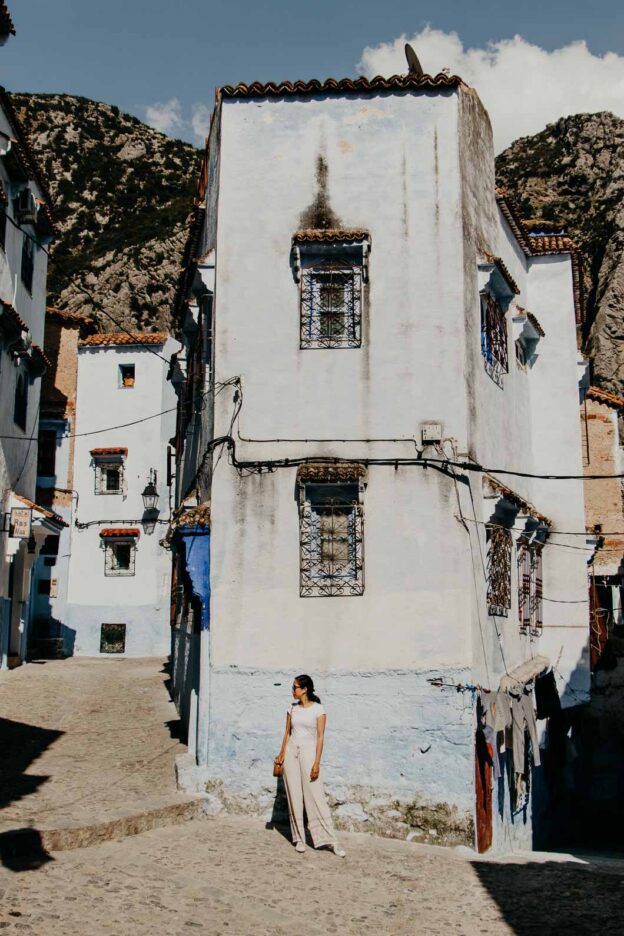
The use and treatment of animals as part of tourist attractions and “experiences” continues to be a hotly debated topic and rightly so. No animal, whether in the wild or in human care, should ever be subject to abuse. We as travellers should make informed decisions before engaging in any activities associated with animals.
Almost all camels in Morocco are domesticated and prized possessions. Long associated with the kingdom’s rich trading past, the one-humped dromedaries are still used by nomads for transportation. Nowadays, camels are increasingly being used in the tourism industry. During our time in Morocco, we personally did not witness any abuse or mistreatment of camels. We participated in a camel ride with Intrepid Travel where the animals appeared in good shape and treated well by the handlers overseeing our experience. If you are still unsure, make enquiries with your tour operators. This link also provides some handy information.
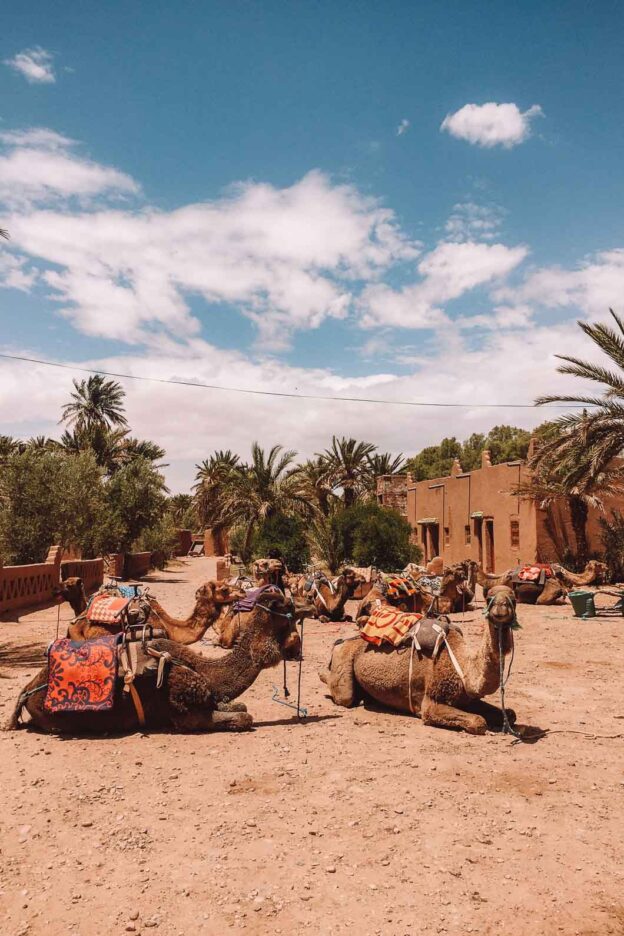
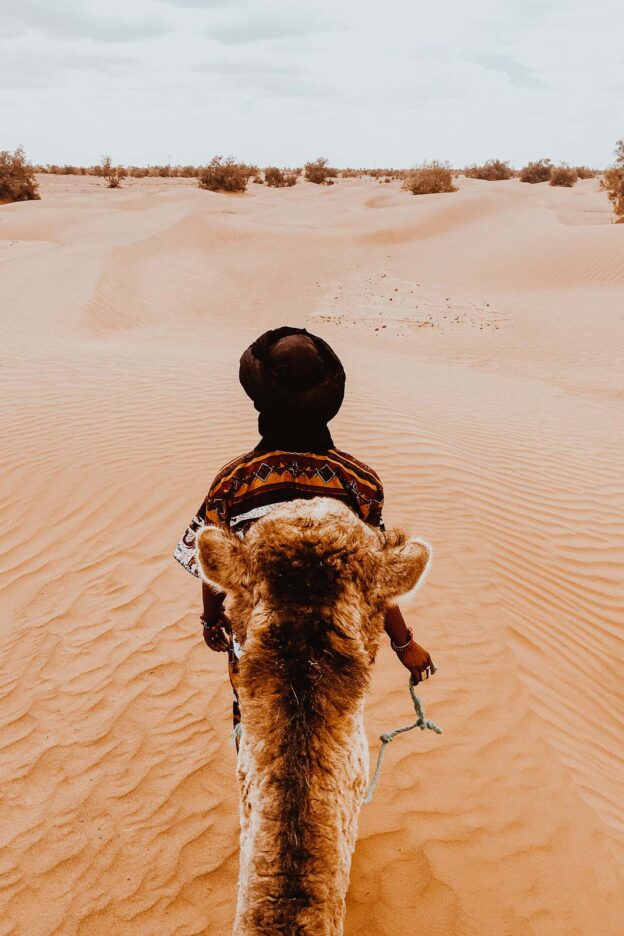
While primary school education is compulsory in Morocco, there are always exceptions. You’re likely to come across children often and they’re not shy to hold out their hands and ask for dirhams. As much as their faces may pull at your heartstrings, don’t give the children any money. If the children receive money from tourists and travellers, they will become reliant on it and start to or continue to skip school, which we don’t want to encourage!
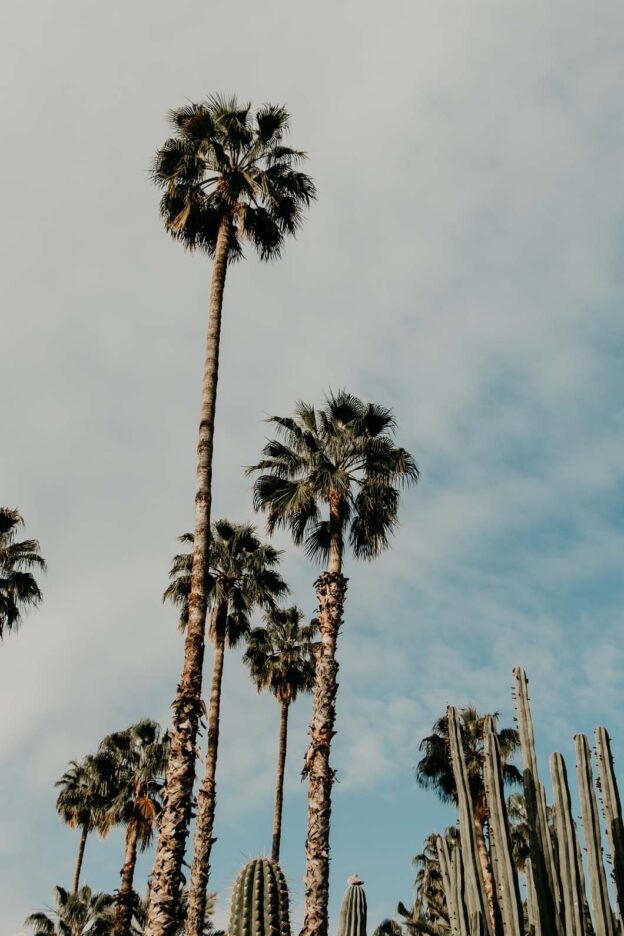
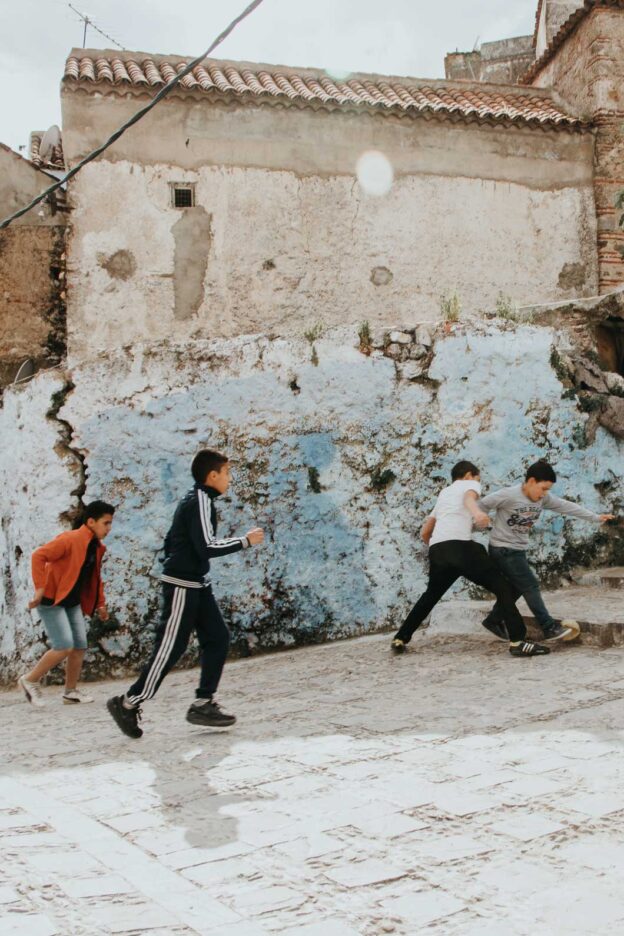
These days, we photograph everything and often without blinking an eye of how it may affect others around us. Be careful and respectful in Morocco. If you wish to take photos of locals in a certain setting, ask for their permission. Respect their wishes if they decline to have their photo taken. Be wary – some locals may say ‘yes’ and then ask for some money. As much as we love to visually document moments from our travels, it is more important to be respectful of people.
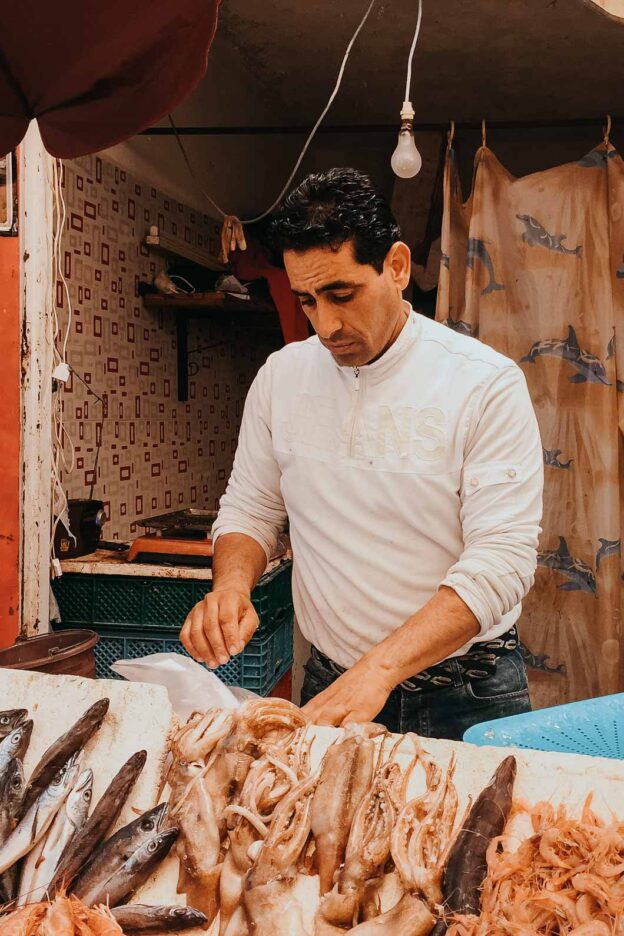
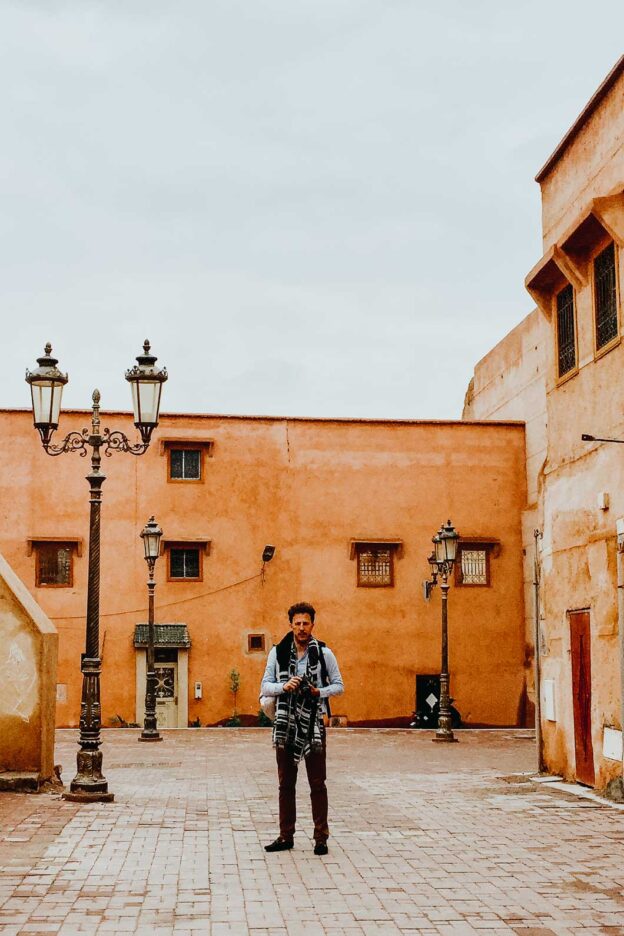
The official religion of Morocco is Islam. About 99% of the population is Muslim. Many women wear a hijab and it was quite common for us to see locals wearing the traditional djellaba (a long loose hooded garment with full sleeves). If you’re visiting during the hottest months of the year (generally from June – August), pack clothes in lightweight, breathable fabrics. Climates in Morocco will vary from the north to the south and from the mountains to the coast.
It is strongly recommended that you dress conservatively and respectively, particularly during Ramadan. For women in particular, it would be wise to cover your knees and shoulders to not draw any unwanted attention or cause any offence, especially when visiting any religious places.
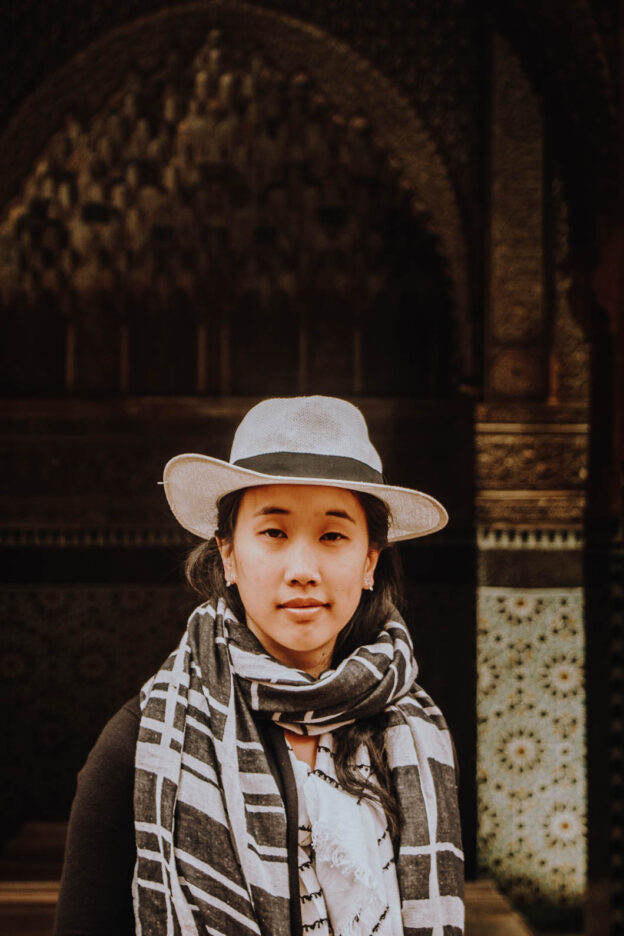
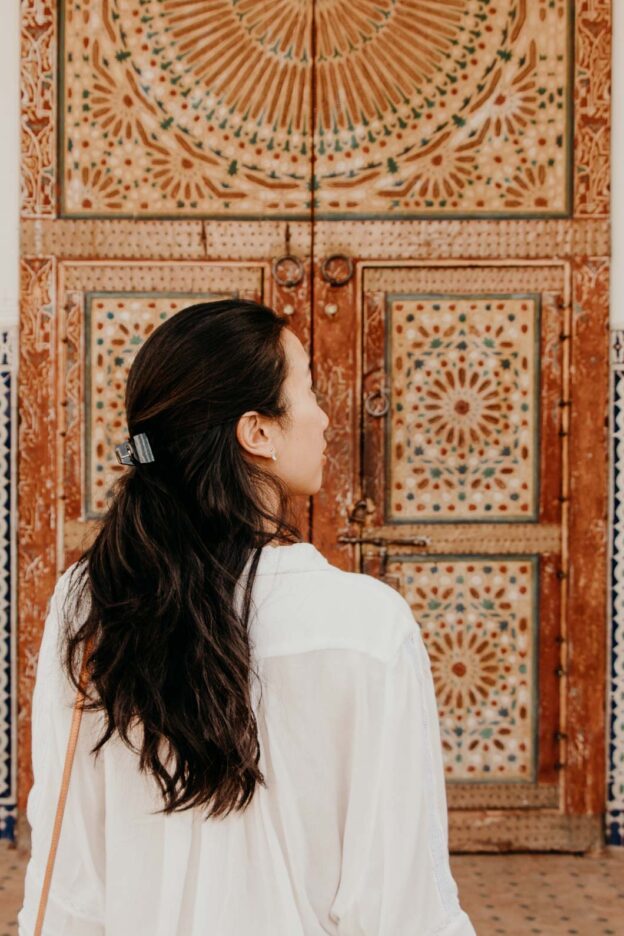
Since 1 July 2016, plastic bags have been banned in Morocco. The country ranks as one of the greenest in the world alongside Costa Rica, Bhutan and Ethiopia. Food markets will offer a micro-fibre cloth bag for your purchases. You can also assist by carrying reusable cloth bags and buying bottled water in larger containers.
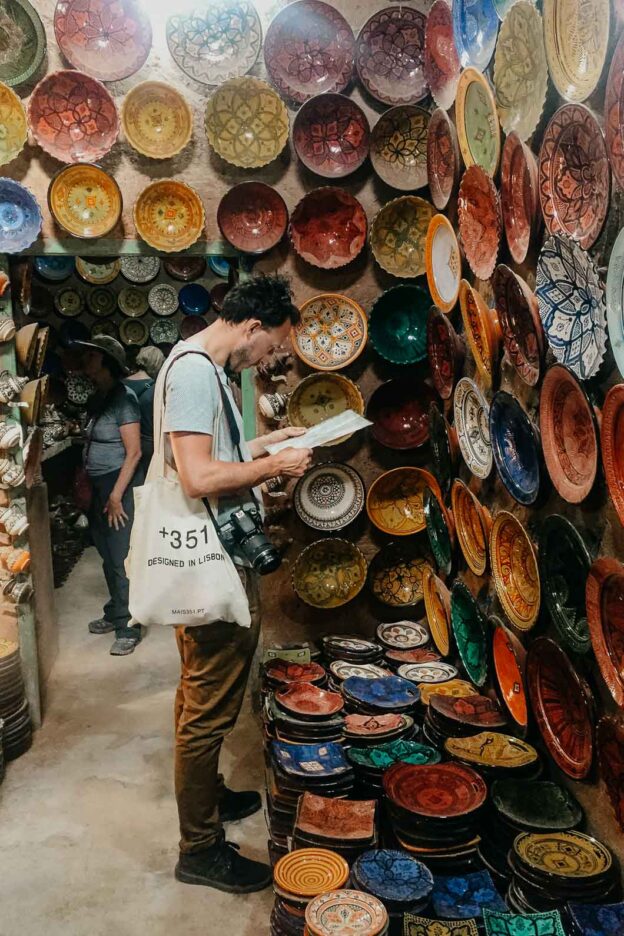
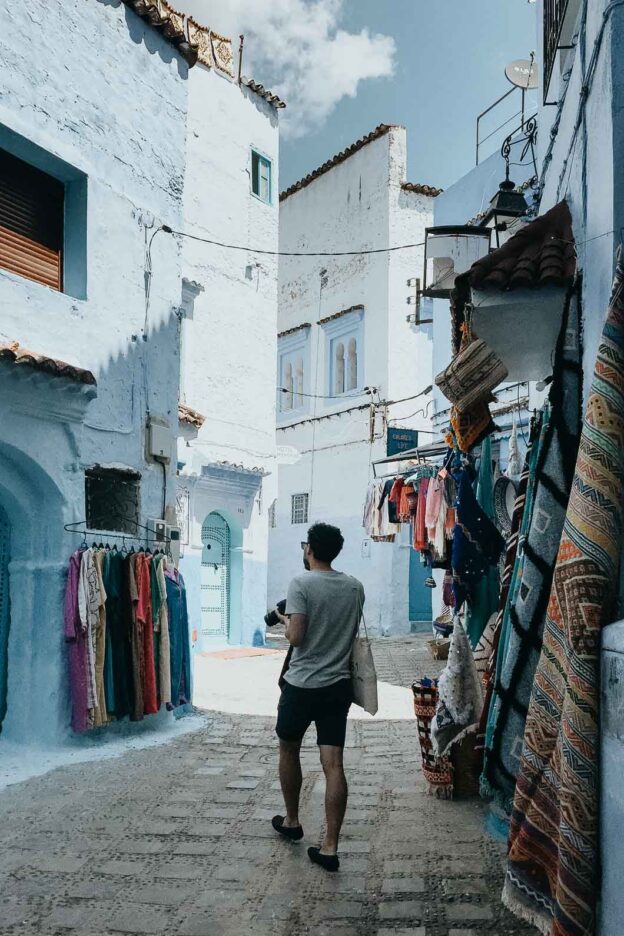
Don’t underestimate the temperatures in Morocco like we did! We visited in late April/early May and whilst we knew we were bypassing the scorching middle-of-summer heat, we didn’t expect the mild/temperate climate. Our first night on our Southern Morocco tour was spent in the Atlas Mountains and had everyone rugged up in all their layers and warm blankets. Additionally, our experience in the Sahara Desert was hardly the blistering heat that we expected. In the evening, it was surprisingly and pleasantly cool. As such, we all dragged our mattresses from the tents and lay under the night sky.
Double check the climate for the time of year that you visit. The mountains tend to be much cooler given the elevation and the coastal cities will also be chilly from the wind factor. The hottest months are generally June – August.
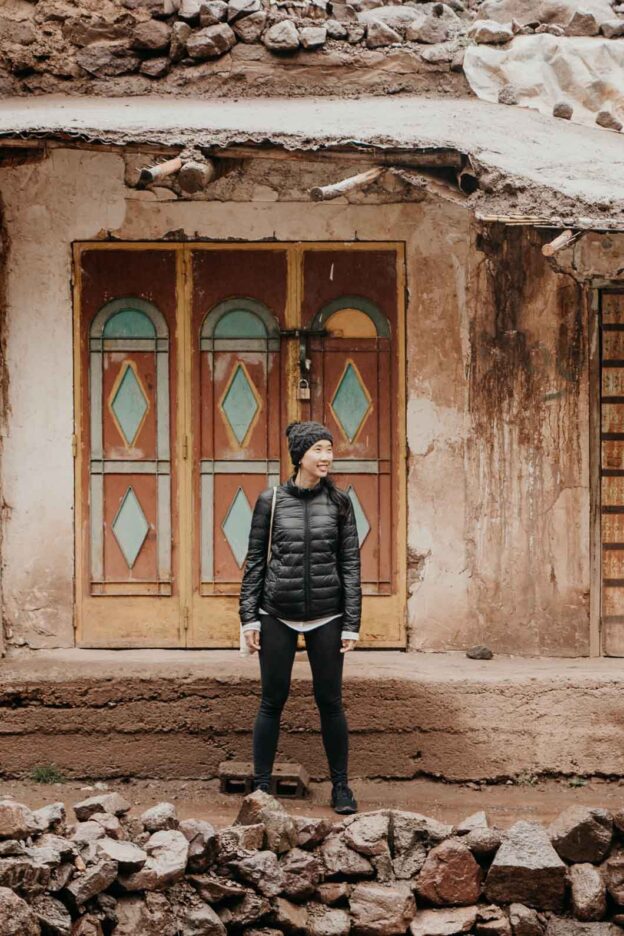
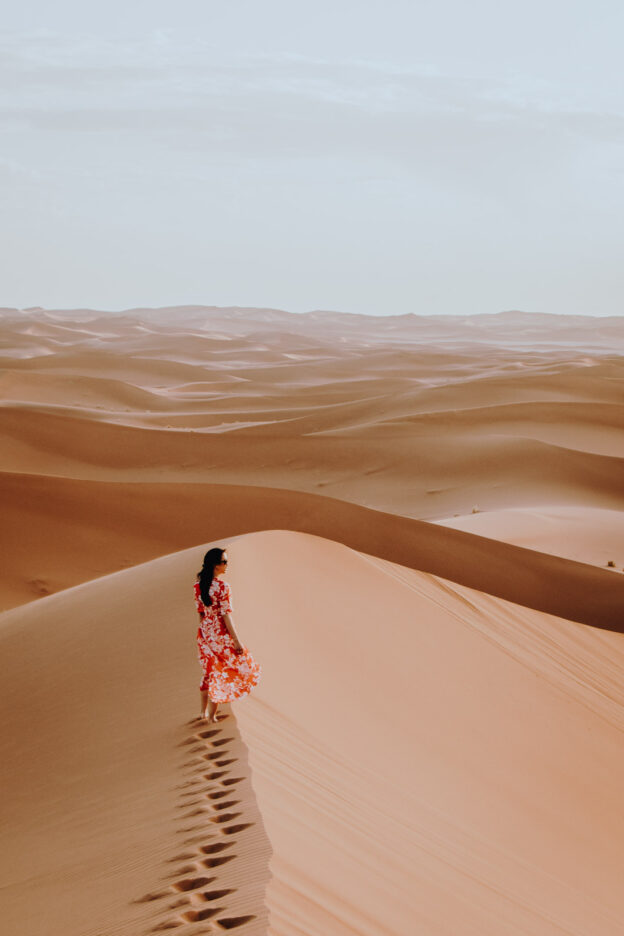
The official language of Morocco is Arabic and the other is Berber. Both are spoken throughout the country. In the larger cities, English and French are largely used but as you move into more rural areas, it will be more common to hear Berber and/or Arabic. Our tour guide was fluent in all four of these languages. Knowing a few phrases in French or Arabic will be helpful when you travel to Morocco.
